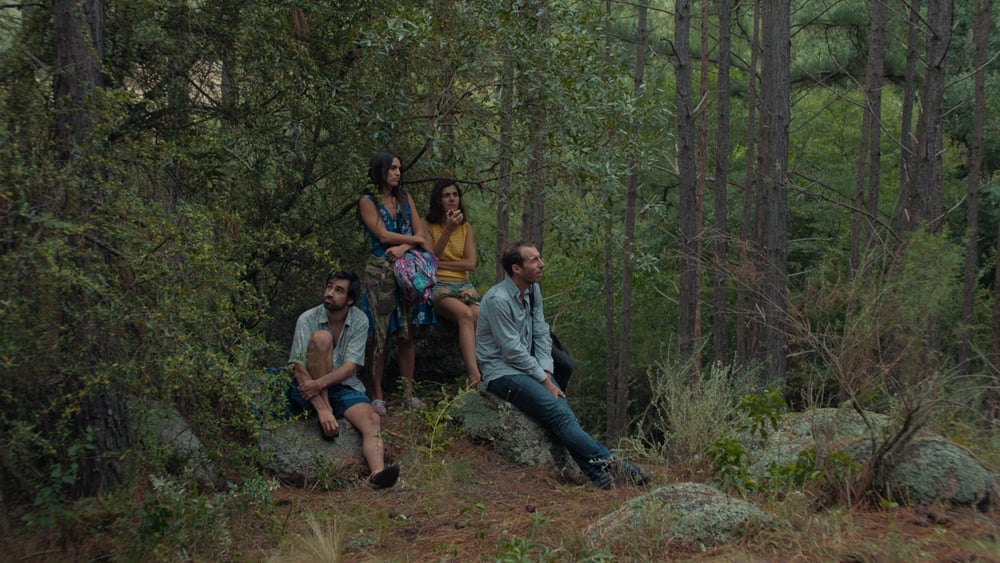Calling Argentinian filmmaker Rodrigo Moreno’s “The Delinquents” just a heist film would be reductive. For one thing, the heist is barely part of the narrative. We don’t see any planning, we don’t see a team being methodically brought together, and the robbery almost seems like something the bank employee Morán did on a whim. The heist’s spontaneity reflects Moreno’s approach to the material — focusing on whatever interests him in a given moment, discarding narrative threads and picking up new ones, and pacing it in such a lackadaisical way that is unlike any other crime film I’ve ever seen.
This approach does cause the film to falter in its second half, which ditches the bank offices and jail cells for a countryside romance — two, in fact — and a love triangle that doesn’t feel all that connected to the story of the first half. It works in its own right, Moreno’s slower, contemplative style being rich in feeling and both romances between Morán and Norma and Román and Norma are fully formed and you can feel the deep connection between all of them. That said, it’s tough to parse how exactly it’s connected to that first half, a dryly funny critique of soul-crushing office work that uses its lack of flair to highlight the mundanity and how unfulfilling it all is.
The second half features some biting critique of who suffers when institutions are hurt. It’s not those at the top, the investors, the customers, or management. It’s the workers. The bank doesn’t even lose any money thanks to the insurance policies held on their cash reserves. Instead, the bank makes its employees lives living hells. They face constant fear of losing their jobs. They are aggressively questioned and pestered about possible involvement in the crimes. Some workers are bullied by having to take on the work of multiple people despite others being available to help. Though the moment we find out Román has quit is played quietly and with little fanfare, just hearing the words evokes a strong feeling of relief because we’ve seen the frustration building for three hours.
If only this were more of the second half — either through giving it more time and attention or cutting large chunks of the romance. The gulf in quality and intrigue between the first and second halves is so stark that it’s hard to call “The Delinquents” a masterpiece, even if part one might be. But it builds up enough goodwill that you do give Moreno the benefit of the doubt, letting him explore any fleeting ideas or scenarios that he can squeeze emotion out of. The final moments may not be narratively satisfying — we never see Morán and Román collect the money and don’t know what they do with it once they have it — but they are emotionally satisfying. Morán rides his horse into the sunset, a classic western closing shot to signify triumph and freedom in wide non-urban spaces.

